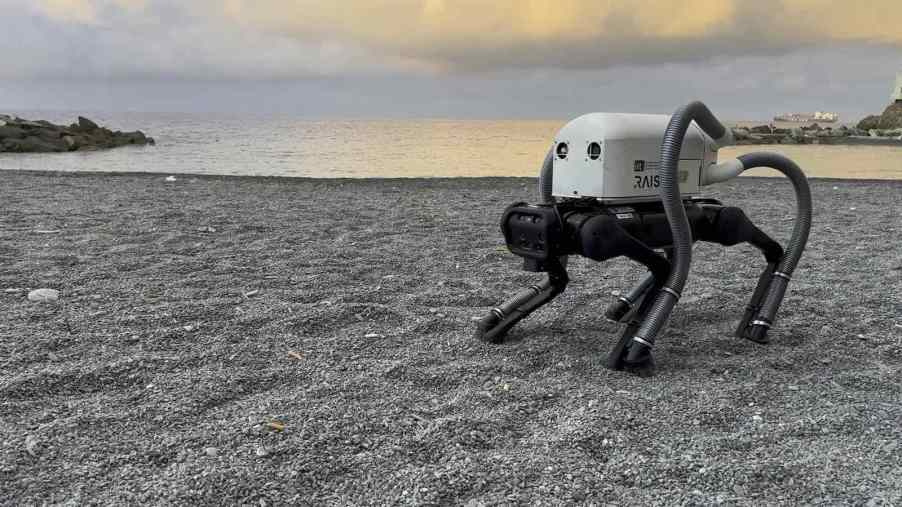
Robot Dog Learns to ‘Fetch’ Cigarette Butts, Clean Italian Beach
Nothing can ruin a trip to the ocean faster than a beach littered with trash. And while we have had “Roomba” robots vacuuming our houses for years, their little wheels don’t mix well with the sand and the tides. Enter “VERO,” who is the goodest boy of all the robots. He’s learned to “fetch” cigarette butts to clean beaches in Genoa, Italy. In the process, he’s pioneered some new technology and opened the door for quadruped robots to help us with countless more jobs.
But first, why cigarette butts? Well of the six trillion cigarettes smoked by us humans ever year, its estimated we toss about four trillion of them on the ground. (Bad humans!). Not only do they look ugly, but each leeches 700 different toxic chemicals into the environment. The NOAA figures they are the most common litter item on the planet.
They are especially difficult to clean up. And on a beach? They sink into the sand and blend in. It would take an army of humans near infinite hours to keep up with it all. Enter VERO, the Vacuum-cleaner Equipped RObot.
This robotic mutt started as a quadruped robot model called the “AlienGo” built by Unitree. He was adopted by the built the Italian Institute of Technology when it took on the beach cleanup project. He’s perfect for beach work because, unlike your Roomba, he won’t get stuck in the sand. IIT mounted a commercial vacuum on his back and ran hoses down each leg. Then the team 3D-printed nozzles for maximum suction on the ground. With the hardware complete, VERO would need to learn some new tricks.
You see, quadraped robots already do a ton of tasks. They keep runways clear by scaring away wildlife dressed as a fox, they have even been shot in the line of duty in police bomb squads. But as far as IIT can tell, they have never used their four legs for mobility and completing a task–simultaneously.
IIT was able to write a program for VERO to identify cigarette butts in the sand. But the big problem was picking them up without falling over. Their solution was a two-part program that first prioritizes mobility and stability, then has him try and move a free foot to vacuum up said butt. The researchers announced that it is “the first time that the legs of a legged robot are concurrently utilized for locomotion and for a different task.”
So far, the little guy has been nailing his new job. Genoa says he’s able to comb the beach and successfully grab 90% of cigarette butts left in the sand. He might move a bit slower than a human trash scooper, but he never gets tired.
The software VERO uses could open up all-new jobs for robots: from construction jobs to agriculture to inspecting buildings for safety.



